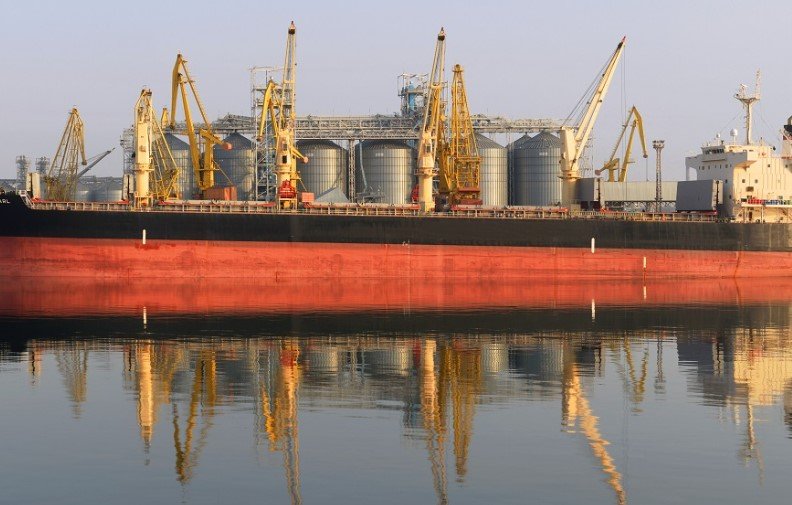A potential logistics deal between Kyiv and Cairo could redraw grain trade routes, strengthen diplomatic ties, and give both nations more leverage in a hungry world.
Ukrainian President Volodymyr Zelensky and Egyptian President Abdel Fattah El-Sisi are taking steps toward creating a new food logistics hub in Egypt — a move that could reshape regional grain distribution and widen bilateral trade. In a message posted on Facebook, Zelensky confirmed the two leaders discussed expanding cooperation, accelerating trade talks, and supporting peace efforts in Ukraine.
The proposal is still early-stage, but the symbolism is rich. A war-battered Ukraine teaming up with a nonaligned Egypt on food security sends signals — to Moscow, to Brussels, to the Global South. This isn’t just diplomacy. It’s supply chain realignment wrapped in geopolitics.
A Hub with Wider Purpose
The concept is simple on paper. Turn Egypt into a regional center to receive, store, and redistribute Ukrainian grain and foodstuffs to the Middle East and Africa.
But the implications are vast.
It’s a workaround to the fragile Black Sea corridor, a nod to the vulnerability of sea lanes, and a pushback against Russian attempts to squeeze Ukraine’s agri-exports.
For Egypt, the appeal is equally clear: reduce dependency on volatile markets, expand its role as a transshipment gateway, and maybe—just maybe—position itself as a go-between in the global grain game.
Zelensky, in his social media note, didn’t get into the weeds of how it’ll work. But he was upbeat about Cairo’s openness.

Food, Peace, and a Message to Moscow
There’s a quiet rhythm in diplomacy where food security often becomes a proxy for geopolitical loyalty. This meeting had tones of that.
Zelensky thanked El-Sisi for backing Ukraine’s sovereignty and emphasized that Egypt “sees our efforts to end the war.”
That matters.
Because for over a year, Egypt has tried to walk a diplomatic tightrope—balancing long-term Russian military ties and energy interests with its growing economic dependencies on Europe and the Gulf. Publicly cozying up to Ukraine, while framing it as part of a humanitarian food effort, gives Cairo wiggle room.
The Ukrainian side framed the hub as part of its wider “peace formula,” the same branding used in international forums to garner support without alienating swing countries.
And Egypt — itself facing food inflation and subsidy pressure — seems ready to play ball.
Logistics First, Politics Later
For the plan to work, details will need nailing down. That’s where things get technical.
The two presidents reportedly agreed to begin preparing a Preferential Trade Agreement and relaunch the Joint Intergovernmental Commission—two bureaucratic tools that help stitch trade infrastructure.
What that actually means in practical terms:
-
Tariff and customs simplifications for Ukrainian goods
-
Access to Egyptian storage and port facilities
-
Coordinated shipping lanes and inspection regimes
-
Export credit discussions, maybe involving Gulf or European backers
Egypt is already the world’s largest wheat importer. Nearly 80% of its population depends on subsidized bread. That gives this potential hub not just economic significance, but social stability weight.
And for Ukraine, this is also about survival. With its ports under constant threat and railway capacity maxed out, it needs new channels to reach paying customers.
Trade on the Table: More Than Just Grain
Although grain leads the headlines, the broader agenda is commercial.
“We will work on increasing trade turnover,” Zelensky said. That’s diplomatic shorthand for “let’s move more stuff across borders.”
Current trade volume between Ukraine and Egypt is relatively modest, especially when compared to Ukraine’s exports to Europe or Egypt’s ties to China and Russia.
But both sides see room for growth. A quick look at potential areas:
| Sector | Ukraine’s Potential Contribution | Egypt’s Interest |
|---|---|---|
| Agriculture | Grain, sunflower oil, fertilizer tech | Wheat, barley, cooking oils |
| Construction | Steel, railway parts | Infrastructure and housing expansion |
| Defense cooperation | Drones, software, logistics advisory | Border security, Sinai modernization |
| Energy | Gas pipeline equipment, green tech | Renewable investments, LNG partnerships |
One small paragraph here to break it up.
Egypt could also become a re-export hub—not just a consumer—making use of its proximity to East Africa and the Gulf. That would give Kyiv access to new customers far beyond Cairo.
A War-Era Bet on the Future
It’s not lost on anyone that Ukraine is trying to ink long-term trade deals while still under daily aerial assault.
This hub plan, modest as it sounds, shows Kyiv is planning for a future where it’s part of stable supply networks again—even if its seaports stay under siege for years.
The deal, if it materializes, also allows Ukraine to engage parts of the Global South more directly, without having to always lean on the U.S. or EU to carry its message.
That matters for its future relevance.
For Egypt, the timing works too. With the Suez Canal revenues falling due to Red Sea insecurity, a new logistics play based on land and food gives Cairo something fresh to pitch to investors.
Many Questions, But Clear Signals
To be fair, none of this is a done deal. Talks are preliminary. Bureaucracies grind slow. There’s infrastructure to build, contracts to negotiate, and political shifts that could derail it all.
But the tone of the announcement is telling.
This isn’t just about silos and shipping containers. It’s about soft alliances. About signaling to bigger powers that food diplomacy is Egypt’s card to play.
And about Ukraine quietly building back—one trade pact, one logistics node at a time.
